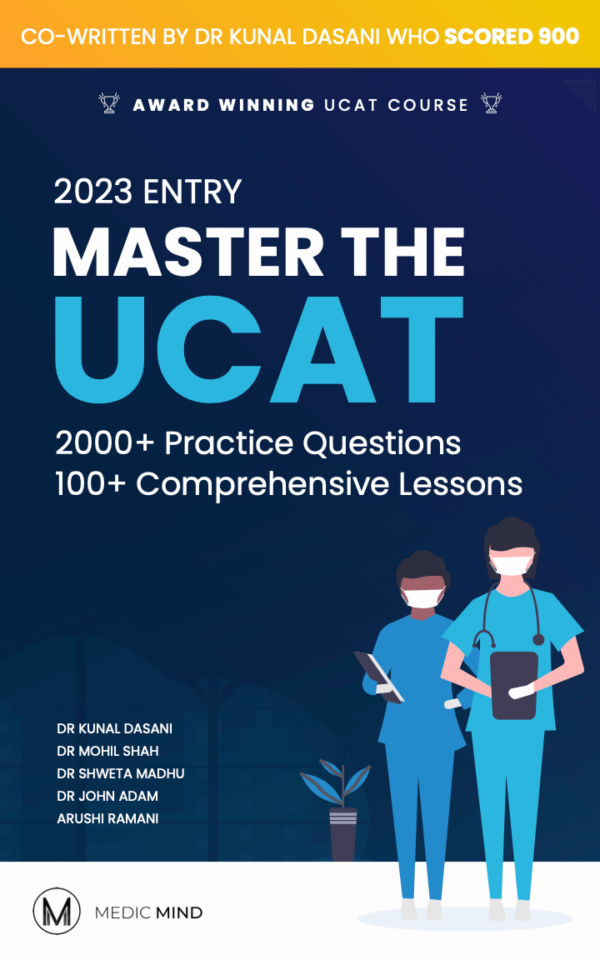Loading...

UCAS: Fees and Costs
When applying to medical school there are many things to consider when it comes to fees, which includes not just the cost of the course itself, but also living expenses. Although budgeting may not be fun, it is essential to take these aspects into account before applying to medical school.
Tuition Fees
Most medical schools in the UK charge £9250 per year for tuition, with some variation for schools in Northern Ireland and Scotland based on where you are from. There are also a handful of private universities in the UK which also have differing tuition fees.
If you are a full-time UK or EU student, you are entitled to apply for a tuition fee loan from Student Finance England. This means you will be able to apply for every year of study, and you can apply for your first year’s funding before you have received an offer. The process is super simple via the student finance website.
For postgraduate students applying to medicine, funding options are slightly different. For graduates or professional entry, medicine courses entitle you to partial tuition fee funding from Student Finance England. However, for graduate students applying for undergraduate courses, although you can apply for a maintenance loan from Student Finance England, you are not entitled to a tuition fee loan. There are alternative funding bodies that you can use, such as Future Finance, but be sure to take this potential issue into account before applying to medical school.

Cost of Living
The other cost associated with attending university is the cost of living, including your rent, bills, food, sports clubs and social spending money. Similarly to your tuition fees, you can apply for a maintenance loan from student finance, however, unlike the tuition fee loan, the amount of loan you are given varies on where you will be living during term time and your household income. Maintenance loans for study commencing in 2019-20 start from £7,324 with a maximum loan of £11,672 based on these varying factors. Be sure to check out the student finance calculator to get an approximate value for your maintenance loan before applying.
Grants are a thing of the past from student finance england, however, many universities themselves will offer grants based off of your household income, so be sure to click that you want to share this information with your chosen university if you do provide student finance with this information.
Extra financial help
If there is still a shortfall in your finances, there are many options available to you, we have listed a few suggestions below:
Bursary from your University
Within medical schools, there are bursaries that you can apply for. These are often awarded based on financial need.
Medical Awards
There are many medical writing competitions you can enter as a medical student, most of which include a cash prize.
Top of year prizes
Many medical schools also offer you a cash reward for being the top student in examinations in your year group.
Hardship Funds
These can be from a variety of sources, there is one available after 2nd year of your medical degree from the BMA, as well as often being available internally from your university and/or medical school.
Studentships
These are available through the armed forces. It may be worth considering if you have been a cadet or are interested in going into the military as a doctor. These are offered from all three service departments, with structure of financial compensation differing between the services. These studentships do come with a commitment, so make sure you are certain before applying.
NHS Bursaries
There are several you can apply for, means-tested and non-means tested, however these are not available in your first year of study.
Part-time employment
Whilst medical schools will not recommend working while studying due to the time commitments of a medical degree, it is important to remember that you need to be able to live whilst studying. Working a few flexible hours may be something worth looking into. Many students will work on campus as a student ambassador, barista, at the students’ union, or alternatively doing jobs such as tutoring and retail during their free time. If you do get a part-time job, be sure that it doesn’t impact on your studies.
Participating in research
Many research projects will be run at your medical school and university, which presents the opportunity to get involved as a volunteer for this research. Many of these opportunities provide compensation to volunteers in the form of vouchers or a sum of cash.
Frequently Asked Question
→What are the UCAS application fees?
The UCAS application fee for the 2022 entry is £22 for a single choice of course and £26 for multiple choices. International students applying to UCAS also have to pay an additional fee of £25.
→Are there any exemptions or discounts for the UCAS application fee?
Yes, there are exemptions and discounts available for the UCAS application fee. Students who are applying for a course in medicine, dentistry, or veterinary science can apply for a reduced fee of £16. Students from low-income households can also apply for a fee waiver. More information about exemptions and discounts can be found on the UCAS website.
→What other costs should I consider when applying to UCAS?
In addition to the application fee, students should also consider the cost of travel to and from university open days, the cost of preparing and sending supporting documents such as transcripts and reference letters, and the cost of accommodation and living expenses if they are planning to live away from home during their studies.
→Are there any financial support options available for UCAS applicants?
Yes, there are several financial support options available for UCAS applicants. This includes student loans, bursaries, scholarships, and grants. Students should research the various options available to them and apply for any that they are eligible for.
→How can I pay the UCAS application fee?
The UCAS application fee can be paid online using a debit or credit card. Alternatively, students can pay by cheque or bank transfer. More information about payment options can be found on the UCAS website.
→Can I get a refund for the UCAS application fee?
In most cases, the UCAS application fee is non-refundable. However, if a student has made an error on their application or if their application is withdrawn before it is submitted to any universities, they may be eligible for a refund. More information about refunds can be found on the UCAS website.
→Can I make changes to my UCAS application after I have paid the application fee?
Yes, students can make changes to their UCAS application after they have paid the application fee. However, there may be additional fees or charges for making changes to an application. Students should check the UCAS website for more information about making changes to their application.
Related Articles
Related links
Support and advice for finding your dream university to study medicine, dentistry or veterinary science
5-day programme with insights into the medical profession. Includes accommodation and ALL meals!
5-day programme with insights into the dental profession. Includes accommodation and ALL meals!





Was this article helpful?
Still got a question? Leave a comment
Leave a comment